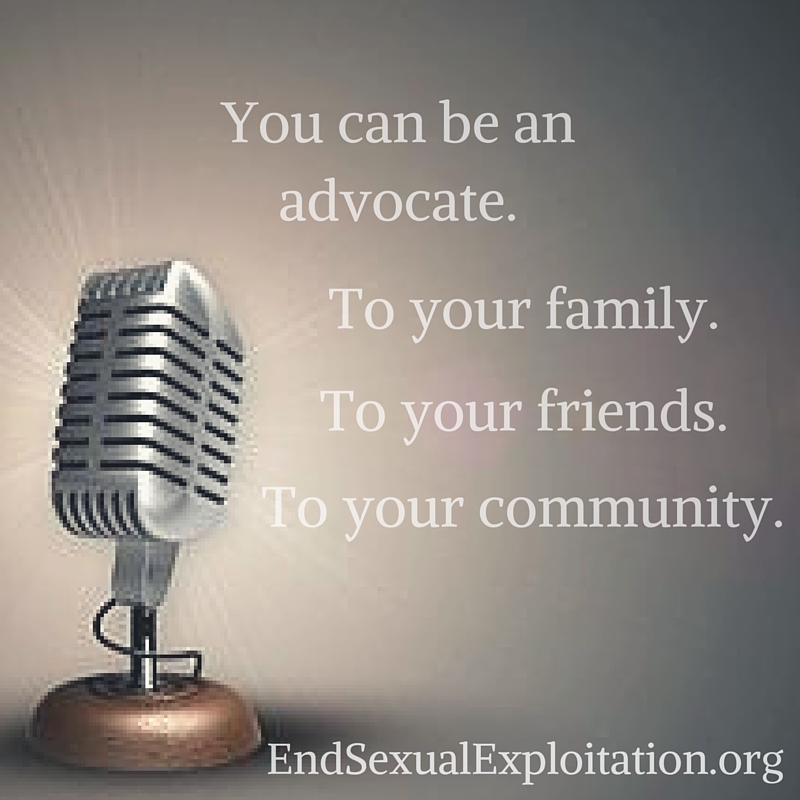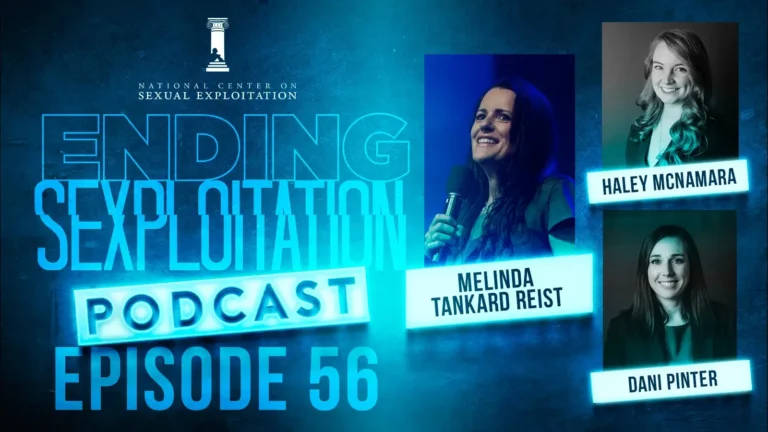With a sign that says “Pornography: A Public Health Crisis,” you’re going to get some attention.
This was the sign that the National Center on Sexual Exploitation chose to feature at its booth this year at the World Meeting of Families, an international Catholic event preceding the Papal visit in Philadelphia. NCOSE was glad to hand out resources and to seek to educate the thousands of conference attendees. Many people took a double take at our sign because they had never seen an organization talking so openly about pornography. Others walked by quickly, glancing at the booth out of the corner of their eye as if afraid to pause and read it fully.
Overall, we had three significant categories of responses to our booth, all of which reveal the importance of continuing to educate the public about this issue:
Response #1: “That’s not a problem in my parish.”
Too often we heard this response from passerby’s when we offered them pamphlets specifically designed to help Catholic parishes deal with the problem of pornography.
So many people are still ignorant of porn’s dramatic influences in today’s society . Gone are the days when you’d have to walk through a questionable part of town to get to a store that sold pornographic magazines. With the advent of the internet, it is no longer a question of “if” someone will be exposed to pornography, but “when.” Four out of five 16 year-olds now regularly access pornography online, and at least a quarter of children are likely being exposed to pornography before puberty.
. Gone are the days when you’d have to walk through a questionable part of town to get to a store that sold pornographic magazines. With the advent of the internet, it is no longer a question of “if” someone will be exposed to pornography, but “when.” Four out of five 16 year-olds now regularly access pornography online, and at least a quarter of children are likely being exposed to pornography before puberty.
Pornography effects nearly every family in America. Even if an individual has never being exposed to porn themselves, they will still be effected by the expectations and culture of others who have been. This is one reason that the National Center on Sexual Exploitation seeks to educate, because only when people understand the vast harms of pornography will they no longer allow pornified culture to thrive.
Response #2: “Porn is good.”
We were shocked that an attendee of the World Meeting of Families would approach us with pro-porn arguments. The young man walked right up to our booth and said: “If I couldn’t watch porn, I would be out raping women.”
This was a highly disturbing statement which revealed the extent that some people will go to justify porn use. We explained to this individual that pornography actually feeds the phenomenon of sexual violence, it doesn’t decrease it. We also pointed him to our PornHarmsResearch.com website, and informed him that peer-reviewed research has shown that porn is also linked to increased demand for sex trafficking and child exploitation, and that it can even physically change your brain and result in lifelong addictions. He was also told about the many recovery websites, featured on our resources page, for those struggling with the impulse to watch porn. While this young man did not leave the conversation entirely convinced, he took some of our materials and said that he would look more into the studies we cited.
It is vital that we inform people about the research on the harms of pornography. Younger generations, especially, are passionate about knowing the scientific facts behind an issue, and it’s important to let them know that science is on our side.
Response #3: “Thank you!”
It is wonderful to note that this was by far our most common response. People from all over the country, and all over the world, told us again and again how grateful they are that our organization is fighting pornography and sexual exploitation. People from the U.S., Nigeria, England, Australia, Puerto Rico, and more, came to our booth with a look of excitement saying: “I thought I was the only one who was talking about this problem!” or “I’ve heard about your Dirty Dozen list, thank you for making a difference!” Many people signed up for our emails and took resources to distribute to others.
It is a great encouragement to see the way that the movement is growing, and it shows that we must continue our efforts now more than ever.
Once people hear and understand the harms of pornography, and sexual exploitation, they begin to care.
Every day citizens can suddenly be transformed into advocates for the cause, and we know that because of so many individuals working together we will make a difference.



